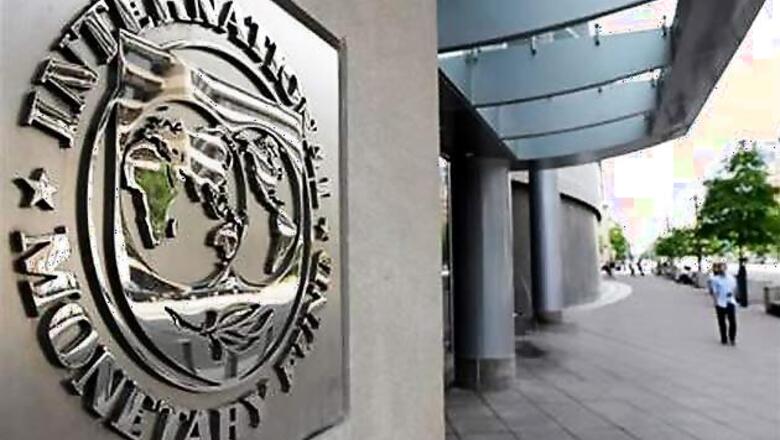
views
Washington: The International Monetary Fund warned on Thursday it would be forced to re-design its $17 billion bailout for Ukraine and require additional financing if the country lost territory in its restive eastern region.
The Fund also said a deterioration in relations between Ukraine and Russia, which buys about a quarter of Ukrainian exports, could further hurt Kiev's economy and force an adjustment to the bailout approved by the IMF board on Wednesday.
"A long-lasting disruption of relations with Russia that depresses exports, investment, and growth, or a loss of economic control over the East that reduces budget revenue would require a significant recalibration of the program and additional financing, including from Ukraine's bilateral partners," the IMF said in a staff report released on Thursday.
In outlining the risks to the program, the IMF also warned of uncertainty about the Ukraine government's commitment to an extensive program of reforms, many of them politically unpopular, especially after its May 25 presidential election.
Ukraine's prior two IMF aid packages were suspended after Kiev failed to comply with promised economic changes. This time, the IMF committed to reviewing Ukraine's progress with reforms every two months, with the next review set for the end of May.
The IMF bailout should unlock another $15 billion in additional aid from Ukraine from the World Bank, the European Union, Canada and other donors. The money is intended to help stabilize Ukraine's economy in the middle of its worst civil turmoil since independence in 1991.
Ukraine's pro-Western leaders conceded on Wednesday they were "helpless" to counter the takeover of government buildings and police stations to pro-Russia separatists in the Donbass coal and steel belt region, located in eastern Ukraine and accounting for up to a third of the country's industrial output.
Ukraine says Russia is behind the unrest, but Russia denies having any part in the rebellion.
The unrest follows months of anti-government protests and Russia's annexation of the Crimea region, which had already pushed Ukraine's economy to the brink of bankruptcy and into a likely 5 per cent contraction this year, according to the IMF.
The IMF acknowledged Ukraine no longer has control over Crimea, but said the region accounts for only 3.7 per cent of Ukraine's national output, and its annexation should not hurt the central government's ability to carry out reforms.
Reforms on deadline
As part of the two-year IMF bailout, Ukraine has promised to keep a flexible exchange rate, move to inflation-targeting, stabilize its financial system, raise energy prices and deal with persistent deficits at Naftogaz, the state-owned oil and gas company. Naftogaz's financing needs could reach 4.1 per cent of GDP this year, the IMF said.
Kiev must also implement structural reforms to improve the business climate and deal with corruption, a long-standing problem in Ukraine.
There are specific deadlines for each of these reforms.
For example, the government agreed to scrap wage increases for the public sector scheduled for July and October, and raise gas and heating prices by another 40 percent in 2015, and by 20 per cent in each of the following two years.
The Ukrainian government already has said it would raise gas prices by more than 50 per cent starting on Thursday.
However, the IMF said there should be some flexibility in the performance criteria given Ukraine's difficult environment.
The key will be for Ukraine's government to stick by its reform pledges even after its presidential election, the IMF said.
"(Authorities') staunch commitment to economic transformation despite resistance from entrenched vested interests will be key for the program's ultimate success," the IMF said.
The IMF's bailout, along with assistance from other donors, should help Ukraine make $9 billion in debt payments this year, along with another $3.5 billion that, according to Russia's Gazprom, Naftogaz owes to Moscow for gas imports.
Five billion dollars of the bailout money will go back to the IMF over the next two years to pay off Ukraine's debts from prior Fund programs.
The IMF said Ukraine's success with the program, along with support from other donors, could be a "watershed moment" for the country, transforming its economy after decades of economic mismanagement and corruption.
"However, if strong support is not delivered and reform momentum is lost, the full force of the current crisis would devastate Ukraine, perpetuating the vicious dynamic of bad policies followed by catastrophic crises," the IMF said.




















Comments
0 comment